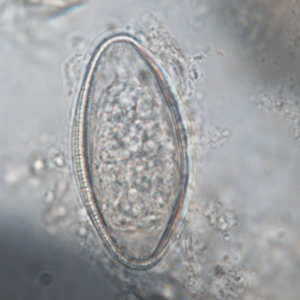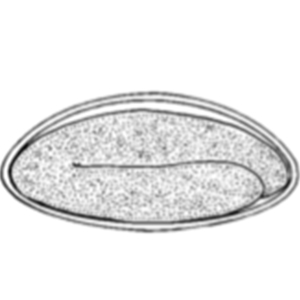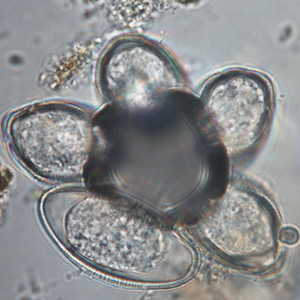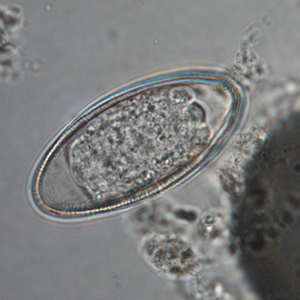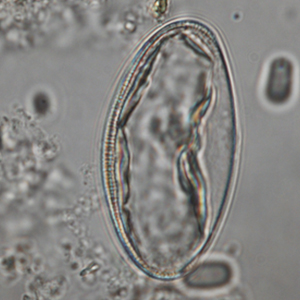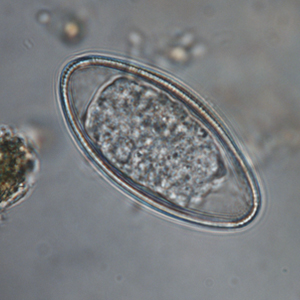Members of the genus Oesophagostomum are nematode from the Strongylidea family, which affects the cecum and colon of a large number of species, including ruminants and primates (Cogswell, 2007). In non-human primates, at least five different species have been reported in the literature, namely Oesophagostomum bifurcum, Oe. aculeatum, Oe. stephanostomum and Oe. blanchardi (Strait et al, 2012). It is important to note the zoonotic potential of Oesophagostomum spp.
Epidemiology
Oesophagostomum spp. have a cosmopolitan and global distribution and may affect Prosimians, Old World Monkeys and Apes. They have notably been described in western dwarf galagos (Galagoides spp.), mangabeys (Cercocebus and Lophocebus spp.), macaques (Macaca spp.), baboons (Papio spp.), guenons (Cercopithecus spp.), Himalayan Grey langurs (Semnopitheus ajax), chimpanzees (Pan spp.), Borneo orangutans (Pongo pygmaeus) and gorillas (Gorilla gorilla) (Strait et al, 2012; Calle & Joslin, 2015; Murphy, 2015; Boundenga et al, 2018; Kumar et al., 2018; Frias et al., 2019).
Description
Oesophagostomum eggs are typical strongyle eggs. It is impossible to differentiate species of Oesophagostomum morphologically. Coproculture is required in order to refine the diagnosis (Cogswell, 2007).
Differential diagnosis
Differential diagnosis includes Ternidens deminutus eggs, and to a larger extent, any non-embryonated strongyle eggs (Cogswell, 2007).
Clinical significance
For the most part, Oesophagostomum infections are asymptomatic in non-human primates. Digestive clinical signs like diarrhea, weight loss, ascites, lethargy, abdominal adhesions, and death can occur in case of massive infections (Cogswell, 2007; Calle & Joslin, 2015; Murphy, 2015).
Prophylaxis and treatment
As Oesophagostomum infections can be zoonotic, hygienic measures need to be taken in case of diagnosis (Strait et al., 2012).
Various treatments have been described in non-human primates, namely (Strait et al., 2012):
- Thiabendazole: 25 mg/kg PO q12h during 2 days; 50 mg/kg PO q24h during 2 days; 100 mg/kg PO once;
- Levamisole: 10 mg/kg SC or PO once;
- Mebendazole: 40 mg/Kg PO q8h during 4 to 5 days.
Severe infections can also be treated surgically in non-human primates (Ngoubangoye et al., 2021).
